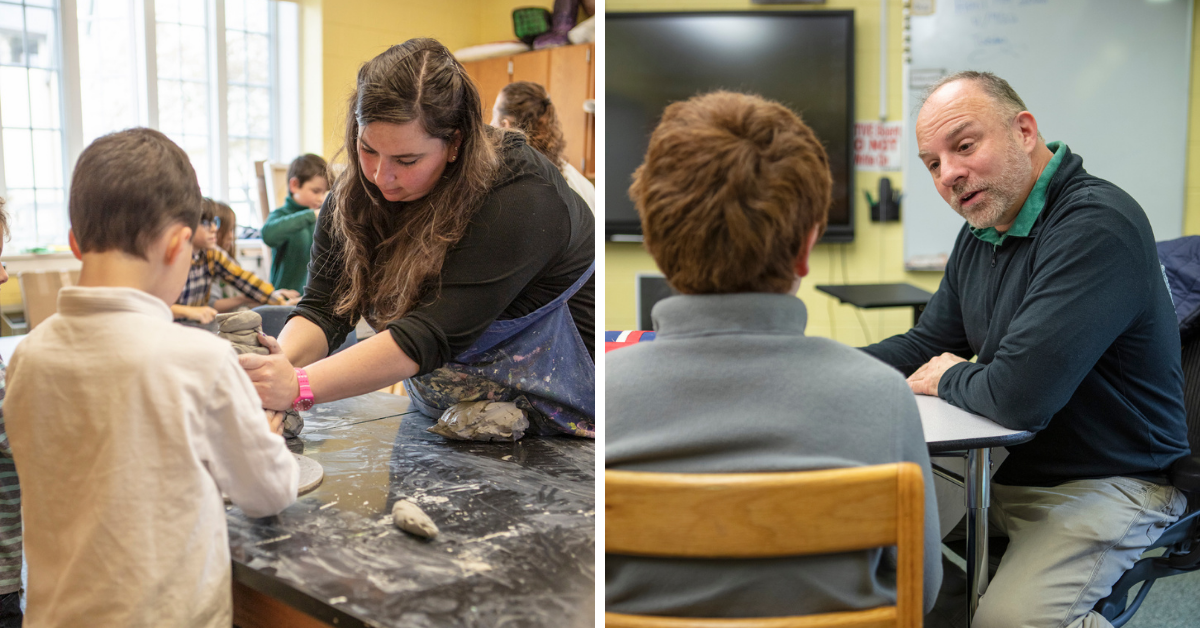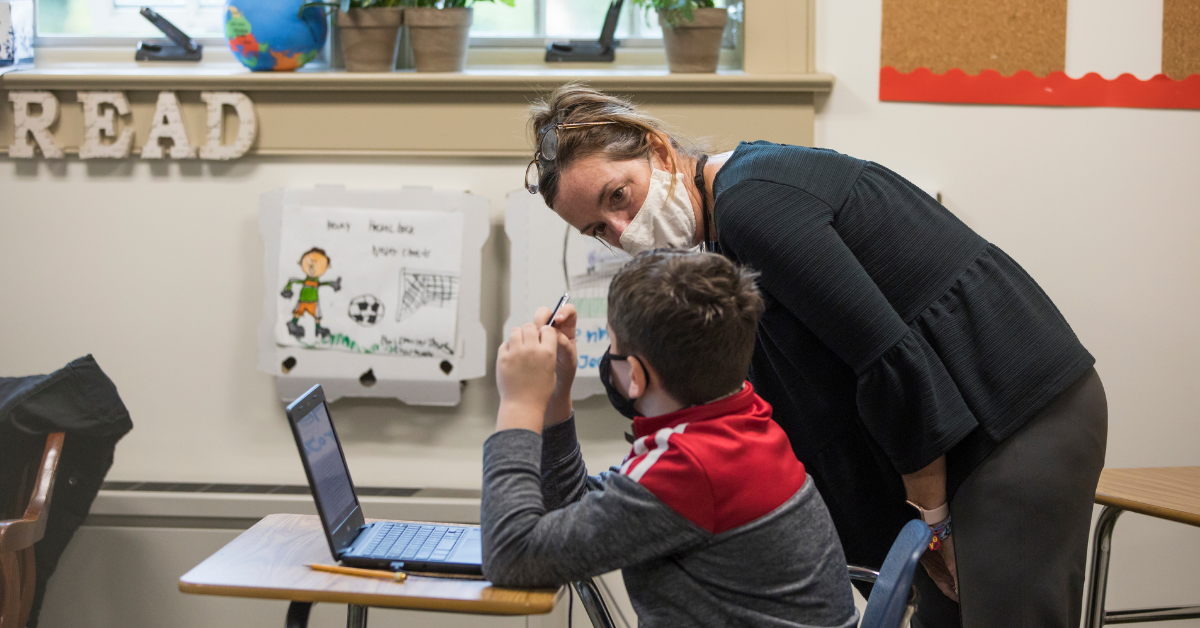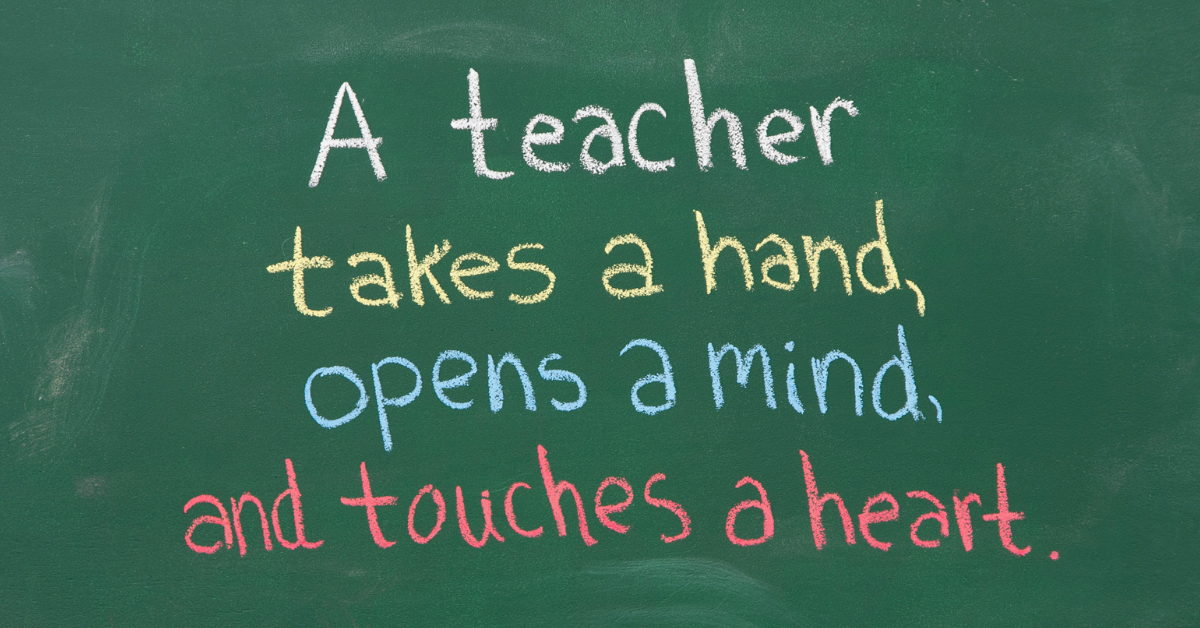At Eagle Hill, our mission is to empower children who learn differently to become confident students and people. Without our faculty of truly remarkable special education teachers, we'd be lost in reaching that goal. With Teacher Appreciation Week this week, we'd like to share how they do it.
Special Education Teachers Constantly Adapt
The COVID-19 pandemic showed just how delicate every delicate school environment is. Schools across the nation struggled to give children a sense of normalcy as districts bounced between online instruction, impromptu closures, and changing health guidelines. Because of how focused they remained throughout this trying time, we are so proud of every single one of our special education teachers.
Should we really be surprised, though? Before the challenges of the pandemic, our special education teachers adapted to student needs day-by-day and second-by-second. From virtual instruction to welcoming students back to campus, their steadfast commitment to students never faltered. They met every change with professionalism and passion.
Though we're not surprised by our teachers' abilities to adapt, we never take it for granted.
They Carefully Craft Students' Individual Education Programs
In the Foundations program, young students need a curriculum focused on giving them the tools and skills vital for academic success. The Lower and Upper School programs put those skills to use in meaningful, enriching ways.
There’s no one-size-fits-all when it comes to special education. Teachers must assess each and every student’s skill and ability to fully understand their needs. They must then develop suitable teaching plans that cater to individual needs and organize activities that are tailored to unique needs and abilities. Often, this involves modifying general educational plans to suit individual needs and creating goal-based action plans.
Special education teachers must be able to work with students in diverse ways, including in a classroom setting, in smaller groups, and through one-on-one personalized mentoring, guidance, and instruction.
Because of the many different learning styles, teaching methods, and student needs, creativity is an essential skill in which our teachers truly shine.

They Provide Priceless Emotional Support
Children with learning differences don't just need academic programs tailored to their needs — they need faculty who understand the complex emotions that come with struggling academically. That's an area in which our faculty excels.
Education for a special education teacher doesn't simply focus on academics — it also needs to focus on behavioral and social growth and the acquisition of life skills. While all teachers, to a greater or lesser extent, need to do this, it's an especially important gift for anyone working with children with additional needs.
Through arts, diverse appealing activities, and in-class support, our staff strives to help students see themselves as the truly remarkable humans they are. Whether that means facilitating new friendships, giving extra time to complete tasks, or spending extra time with students struggling to grasp concepts, they're prepared to do what it takes to make Eagle Hill an emotionally-supportive environment.
There are several words that sum up our teachers: compassionate, empathetic, supportive, knowledgeable, nurturing, dedicated, kind, tactful, skilled, intuitive, passionate, and patient, to name just a few.
They Need Excellent Communication Skills
Special education teachers don’t only need to be able to communicate effectively and compassionately with students to facilitate learning and development. They also often need to advocate on a student’s behalf, resolve conflict and misunderstanding within a group, and effectively communicate with parents.
They may need to also frequently communicate with outside agencies, such as therapists, counselors, psychologists, social workers, and caseworkers, as well as other teachers and school administrative staff to provide the best education and care for their diverse learning group. And, at the heart of all communications is a student's well-being, development, and happiness.
When working with students, active listening is vital. Teachers also need the gift of mastering non-verbal communication, such as reading body language and responding in ways that don’t rely on just words alone. Special education teachers need to use a wide range of communication techniques on a day-to-day basis.
Furthermore, teachers need to know a whole array of technical terms and medical diagnoses to be able to understand unique needs and provide individualized support and education. As well as knowing these terms, teachers must know the many acronyms used in this area, such as ADA, LRE, and PPD. Our teachers further need to be able to cut out the use of this jargon when talking with parents and communicate with you in a way that is useful, practical, and beneficial.
Also related to parental discussions, our teachers need to know what detailed specific information needs to be shared with parents, including examples, rather than overgeneralizing. They need to develop a good partnership with parents as well as with students.
Above all, special education teachers often need to communicate with compassion and empathy, particularly with students and their parents.

They Have Plenty of Patience
Our teachers know that building meaningful relationships with students often takes plenty of time and effort. They also know that without this rapport, a student won’t thrive in the classroom. Not only will a student not grow, but they certainly won’t thrive or reach their full potential without this special relationship being nurtured. Teachers must also have the patience, along with knowledge and practical skills, to make sure students feel comfortable and valued at school.
Each day can present a whole host of unexpected situations. Students can have an array of problems or perceived problems that teachers must understand and help with.
Furthermore, our special education teachers embrace each student and accept them for who they are as a complete package, with their various needs, behaviors, challenges, and delights. They treat all students not only with compassion, tolerance, and understanding but also with the dignity and respect that they and their parents deserve.
There are so many reasons to celebrate our special education teachers here at Eagle Hill School this coming Teacher Appreciation Week!


